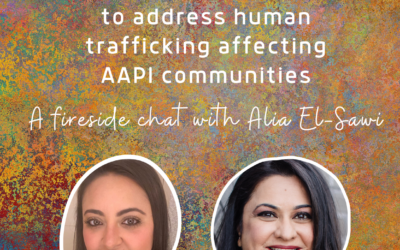A Guide for Advocates to Understand the Legal Implications of Abusive International Marriages grew out of the need to identify legal remedies available to survivors and family members affected by this issue. It is intended as a resource for advocates who work with Hmong American women and families affected by abusive international marriages as defined below. Abusive international marriage is a very specific form of gender-based violence steeped in specific cultural experiences; hence, typical legal remedies designed for domestic violence and sexual assault might not be appropriate. Women in abusive international marriages often have a wide variety of legal and non-legal issues that need to be competently addressed, and it is easy for an advocate to feel overwhelmed. Advocates, however, can contribute a critical service to women by helping to identify the many issues in an abusive international marriage, and by exploring options and resources that might be available. This Guide provides information for advocates so they are better equipped to do just that.
Related Resources
PowerfuL Partnerships: Collaborative efforts to address human trafficking affecting AAPI communities, 2022
Alia El-Sawi, a Victim Assistance Specialist at the Department of Homeland Security, joins API-GBV for our first “fireside chat” hosted by our Executive Director Monica Khant. Drawing also from her previous role as the Anti-Human Trafficking Coordinator at a community-based organization that provides culturally-responsive services for survivors of human trafficking, Alia will discuss what can be done to increase coordination and communication between DHS agents and community-based advocates in responding to trafficking situations and minimizing trauma for survivors. The conversation will also illuminate challenges to current anti-trafficking efforts, including fear of reporting, human-trafficking’s concurrence with other forms of gender-based violence, and the abundant stereotypes around the trafficking of AAPI individuals.
Infographics: Trauma-Informed Advocacy for Survivors of Human Trafficking at Points of Contact, 2020
What survivors of human trafficking and the advocates who work with them have taught us about practicing trauma-informed advocacy at various points of contact. A set of shareable infographics
Trafficking: Trauma & Trauma-Informed Collaboration & Advocacy, 2018
Building from what trafficking survivors have taught us, this webinar discusses how to identify survivors, how past experience of help-seeking can influence current attempts, and the importance of trauma-informed care at different points of contact with survivors such as raids, arrest, and at shelters.
Considerations and Recommendations on Trauma-Informed Advocacy for Trafficking Survivors, 2017
This TA Brief addresses the complexity of advocacy for adult and minor survivors of trafficking. Topics include: Definitions, Analysis/Root Causes, Trauma-Informed Advocacy, Endangerment & Confidentiality, and Considerations & Recommendations at Points of Contact — raids, arrest, custody and release, legal processes, shelters, and health and mental health systems.
Intersections of Human Trafficking, Domestic Violence, and Sexual Assault: National Organizational Advocacy Roundtable, 2016
Advocates representing Native programs, domestic and sexual assault state coalitions, and direct service agencies examine the scope of the problem, resources, needs, challenges, strategies, and principles to build and sustain coordinated systems of service provision and survivor-centered advocacy.
Trafficking Resources List, 2017
A brief compilation of governmental agencies, NGOs, and resources about DMST/CSEC, healthcare, interpretation, legal services, and research.

API-GBV and BWJP
2016

